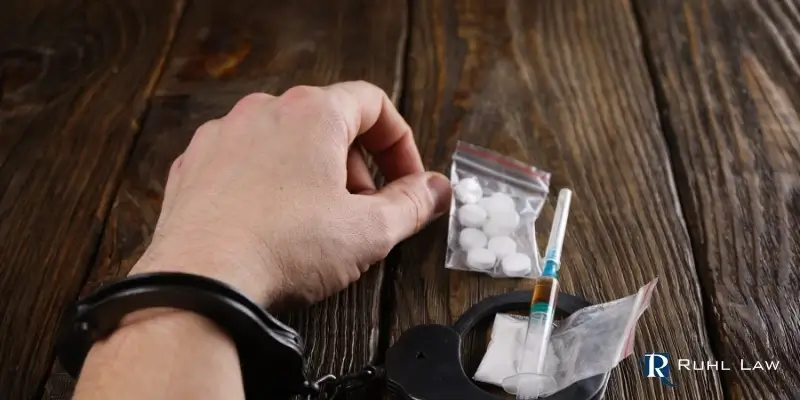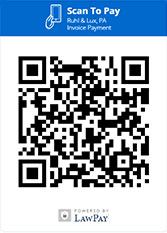Punta Gorda Drug Crime Lawyer
Punta Gorda Drug Crime Attorney
As soon as you are able after being charged with a drug crime, you need to contact a knowledgeable Punta Gorda drug crime lawyer. Having the right defense attorney on your side can have a hugely positive effect on the outcome of your case and the long-term consequences on your life.

Common Types of Drug Crimes
Florida has several types of drug charges, including:
- Possession of a Controlled Substance. This type involves having illegal drugs or controlled substances in your possession without a prescription. The severity will depend on the type of drug and how much is on you.
- Possession with Intent to Sell or Distribute. If you’re found with a quantity of drugs that exceeds what is typically considered for personal use, you could face charges of possession with intent to sell or distribute. This is a more severe charge than simple possession and has harsher penalties.
- Drug Trafficking. Trafficking involves the transportation, distribution, or sale of controlled substances. The penalties for a drug trafficking charge are severe and life-altering.
- Possession of Drug Paraphernalia. Drug paraphernalia includes scales, baggies, pipes or bongs, small spoons, and syringes. These are items used to produce, use, or conceal illegal substances.
Other common types are prescription drug fraud, manufacturing or cultivation of illegal drugs, and even drug-related DUIs.
Penalties of Drug Charges in Florida
The penalties for drug charges in Florida vary depending on the amount of the substance found and the level of crime.
- First-Degree Felony. First-degree felonies are the most serious of charges and usually result in up to 30 years in prison and fees up to $10,000. Most drug trafficking charges, possession of large amounts in drug-free zones like schools, parks, or daycare centers, prescription drug fraud, and manufacturing or cultivating large quantities of certain drugs are charged as a first-degree felony.
- Second-Degree Felony. A second-degree felony conviction can be sentenced with up to 15 years incarceration in prison and fines of up to $10,000. Offenses such as possession of certain controlled substances and trafficking of controlled substances that fall short of the first-degree felony charge threshold will be charged as a second-degree felony.
- Third-Degree Felony. Third-degree felonies in Florida are the least severe type of felony and can be punished with up to five years of incarceration and fines reaching $5,000. Potential offenses include possession of controlled substances with no intent to sell or distribute or trafficking of controlled substances that fall short of the first and second-degree felony charge threshold.
- First-Degree Misdemeanor. The least severe drug charge, a first-degree misdemeanor conviction, can be penalized with up to one year in jail and fines up to $1,000. Many drug possession and drug paraphernalia charges will fall be charged as a first-degree misdemeanor.
Florida Drug Schedules
Florida classifies controlled substances into five schedules based on their potential for abuse, recognized medical uses, and the potential for dependency. The five schedules are:
- Schedule I. Schedule I drugs have a high potential for abuse, no accepted medical use, and cannot be used safely. Examples of substances in this category are heroin and LSD.
- Schedule II. Schedule II drugs have a high potential for abuse, no accepted medical use, and a high potential for dependency. Examples are cocaine, methamphetamine, and oxycodone.
- Schedule III. Schedule III drugs have moderate abuse potential, accepted medical uses, and moderate to low dependency risk. Examples include ketamine and some barbiturates.
- Schedule IV. Schedule IV drugs have low abuse potential, medical uses, and limited dependency risk. Examples include Xanax and Ambien.
- Schedule V. Schedule V drugs have low abuse potential and medical uses and contain limited quantities of narcotics. An example is cough medicines containing codeine.
Defenses for Florida Drug Crimes
A drug crimes attorney can assess your case and determine the right defense strategy. We can:
- Challenge the legality of any search and seizure,
- Question the chain of custody of evidence,
- Dispute possession by arguing that you did not have actual possession of the drugs or were unaware you had them,
- Argue that there was law enforcement misconduct, and/or
- Question the reliability of witness testimony.
In some cases, an attorney can negotiate with the prosecution to seek alternative sentencing options, such as drug treatment programs or probation, as well as negotiate a plea bargain for reduced charges. Every defense strategy will be unique based on your case circumstances.
FAQs About Punta Gorda, FL Drug Crime Law
What Is the Difference Between Drug Possession and Trafficking?
Drug possession is when you have illegal drugs or controlled substances for personal use, while drug trafficking involves transporting, distributing, or selling drugs. The distinction between possession and trafficking usually depends on the quantity of drugs involved and if there is evidence suggesting an intent to sell or distribute. The criminal penalties are also more severe for drug trafficking charges.
How Do I Get a Drug Trafficking Charge Dismissed in Florida?
Having your drug trafficking charge dismissed will require a skilled criminal defense attorney who can build a strong defense strategy on your behalf. Some common ways they can do so is to challenge the evidence, claim lack of knowledge or intent, entrapment, coercion, mistaken identity, and possibly challenge the validity of your arrest.
Can I Be Charged with DUI for Driving Under the Influence of Drugs in Florida?
Yes, you can be charged with a DUI while driving under the influence of drugs. Florida law prohibits driving under the influence of illegal drugs and prescription medications that can impair the driver’s ability to operate their vehicle safely. DUI penalties in Florida include fines, license suspension, probation, and jail time if the accident causes injuries or it is a repeat offense.
What Are the Penalties for Drug Possession in Florida?
The penalties for drug possession in Punta Gorda and throughout Florida depend on the type and quantity of the drug, your criminal history, and whether or not the offense occurred in designated drug-free zones. Possession of small amounts can be classified as a misdemeanor, while larger amounts can result in felony charges.
Charged with a Drug Crime? Contact Our Skilled Criminal Defense Attorneys Today
If you have been arrested for drug crimes in Punta Gorda, you need an experienced and skilled criminal defense attorney who may be able to have your charges reduced or even dismissed. Contact Ruhl Law, P.A. to schedule your free consultation.
Facing Drug Charges?
Tell us about your case and discover what we can do for you.
© 2025 Ruhl Law, P.A. • All Rights Reserved.



